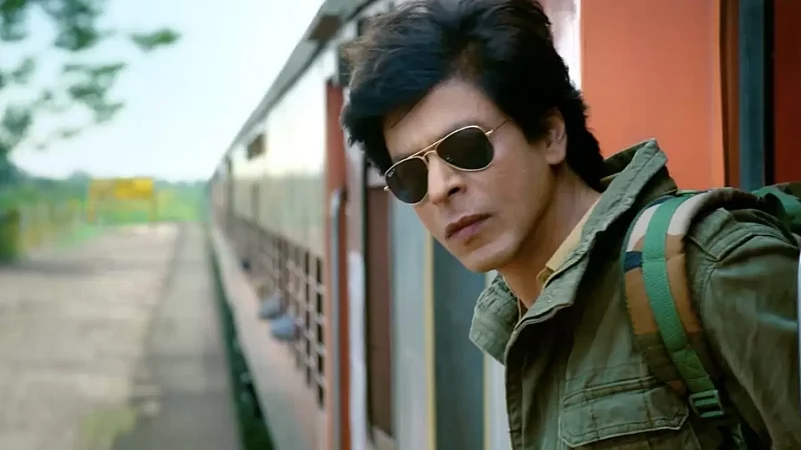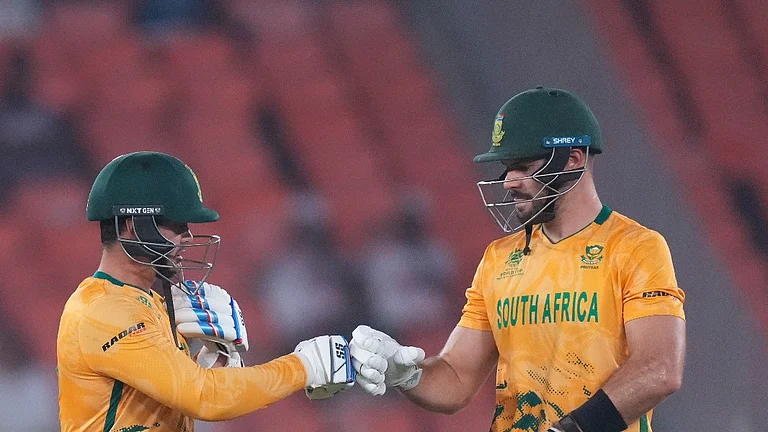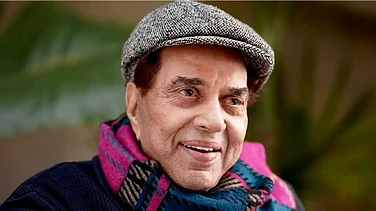In the cinematic landscape of 2023, Shah Rukh Khan has undeniably emerged as the focal point, and as a film enthusiast, critic, and above all, a devoted fan, there's been nothing more gratifying. Over the past year, Khan has not only revitalized an industry that has been in a prolonged slumber but has also injected a renewed sense of excitement into the movie-going experience. This is precisely why, as I stepped into Dunki, my heart was filled with hope and fervent prayers for its success—I walked in with a genuine desire to be dazzled, but, amidst the anticipation, there lingered the existential fear, the nagging thought that perhaps, things were too good to be true, a belief stemmed in the fact that Hirani, at his worst, is a mediocre filmmaker and, at his best, an intriguing one prone to stumbling in the execution of a story.
Sadly, in the realm of life's revelations, there are few instances where being right may not bring joy, and discovering that Rajkumar Hirani isn't the cinematic virtuoso many perceive him to be is one such realisation. It's not that he lacks talent—he's undeniably good—but the greatness attributed to him might be a stretch. His storytelling, while aiming to seamlessly blend humour and tragedy, falls prey to an overt simplicity. This approach, instead of fostering depth and nuance, results in a narrative that struggles to explore the intricacies of its themes. In essence, Hirani's storytelling, though effective on the surface, leaves a longing for the richness and complexity that truly remarkable filmmaking can offer.
Dunki, unfortunately, succumbs to the limitations of Hirani's scaled-down filmmaking, woven around a star who, despite earnest endeavours, doesn't quite fit the mould of a slice-of-life character. The clash between the cinematic aspirations and the star's persona leaves us with a film that is undeniably poignant yet only mildly entertaining. In its attempt to tackle the theme of immigration, the narrative becomes convoluted on the repercussions of colonialism, and the intended message gets lost in translation. The film, while possessing moments of emotional resonance, struggles to navigate the complex terrain it attempts to explore, resulting in a somewhat disjointed cinematic experience.

An aged Manu Randhawa (Taapsee Pannu) is gripped by homesickness, yearning to return to India alongside her friends Buggu Lakhanpal (Vikram Kochhar) and Balli (Anil Grover). Despite their desire, the trio faces the obstacle of visa denial from the British embassy. With no alternatives left, Manu reaches out to Hardy, also known as Hardayal Singh Dhillon (Shah Rukh Khan), in Laltu, Punjab, determined that he can help them find a solution. We are then taken back in a flashback, revealing the origins of their bond in 1995 in Laltu, Punjab. Back then, Manu, Buggu, Balli, and Sukhi (played by Vicky Kaushal) shared dreams of settling in London for a brighter future. Enter Hardy, a soldier, who is committed to helping them make this seemingly impossible dream, a reality.
While the film exudes commendable earnestness, it falls short of meeting the heightened expectations set by Shah Rukh Khan's previous endeavours. Unlike Pathaan, Dunki lacks the luxury of being approached with low expectations, carrying the weight of both its predecessors, Pathaan and Jawan. This baggage is not a light burden; it is laden with Khan's colossal stardom—a stark contrast to Hardy's portrayal, grounded in the heroism of a boy-next-door rooted in the soil. The film grapples with the challenge of aligning audience expectations with a different facet of Khan's cinematic persona. By the time Dunki came around, we started hoping more, setting ground for failure, for a film that didn’t try enough as it is.

Nevertheless, Khan's effort is palpable, as resolute as in his previous endeavours. Perhaps, it is this unwavering commitment that allows his stardom, or its absence in this context, to navigate the narrative of illegal immigration through the donkey route with a poignant sincerity. In the song Main Tera Rasta Dekhunga, Khan brings his signature and affecting charm. His eyes, as always, serve as a captivating focal point, drawing you in and holding your gaze. As I've often asserted, the most enchanting aspect of Shah Rukh Khan lies in his eyes—a window to the endless grief and love that exists in this world.
Taapsee Pannu portrays Mannu with both capability and efficiency, showcasing a surprising chemistry with Khan—an achievement attributed as much to her prowess as to Khan's. However, it is Vicky Kaushal who emerges as the standout performer in his guest appearance. His emotive prowess is on par with Khan, if not surpassing, and there's an enigmatic quality to Kaushal's ability to fully inhabit a character that remains captivating to date (as evident in his recent portrayal of Sam Bahadur). The ensemble cast, spearheaded by Khan, exhibits competence in a screenplay that demands collective effort, refusing to solely lean on Khan's shoulders.
Moreover, Khan's subtle brand of patriotism resurfaces, following his recent portrayals in Pathaan and Jawan, amidst an atmosphere steeped in hyper-nationalism and aggression. Regardless of the prevailing climate, Khan remains a manifestation of love. Throughout the majority of his career, this love was reserved for the women of his dreams. However, in recent times, and opportunistically so, this love has evolved into a profound attachment towards the country, and it proves to be crucial. The significance lies in the fact that when Hardy asserts that his country does not pose a threat to him, one is left contemplating whether it's a character speaking, or a patriot yearning to believe because the truth is Khan's identity is constantly under attack in the very country he ardently defends. Activists and journalists face constant peril, yet, for the sake of this film and the hope it embodies, India remains, unequivocally, the place we call home. Khan echoes this sentiment in his courtroom monologue—a moving acknowledgement that home may be fractured and tumultuous, but it remains home nonetheless.
Despite these considerations, when delving into the discourse on illegal immigration, Dunki conceptually stumbles, particularly in its exploration of colonialism, a theme recurrently interjected into the narrative. The film falls short of infusing sufficient nuance and depth into these conversations to render them truly impactful. Everything seems overt and conspicuous, from dialogues to the looks bestowed upon the characters through makeup and CGI. Khan, already at the age of 58, hardly requires ostentatious grey beards to convey an older appearance, raising questions about the need for such embellishments in the storytelling. Hirani’s filmmaking and writing feel amateur, and that is a dangerous ground for a film with Shah Rukh Khan in it because while Khan is many things, the one thing he isn’t is amateur.
Considering everything, Dunki makes for a decent one-time watch, provided you don't anticipate the same level of excitement as Pathaan or Jawan. If you can temper your expectations and overlook the somewhat caricaturish appearances, the film offers a heartfelt narrative with the undeniable presence of Shah Rukh Khan. While heart and Shah Rukh may seem synonymous, Dunki could have potentially been a better experience—for both the audience and Khan himself.

















